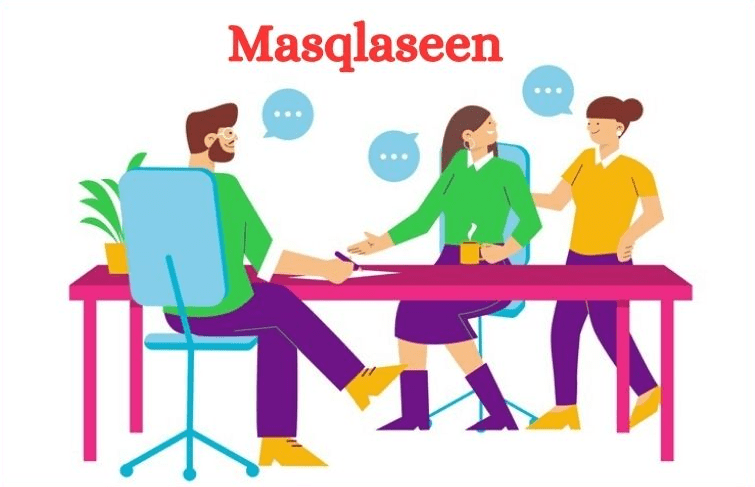The phrase “lrtsjerk” has become commonplace in today’s society when discussing workplace culture and interpersonal dynamics. It is important to understand what determines lrtsjerk behavior to promote a healthy environment and improve interpersonal relationships.
Table of Contents
Understanding Lrtsjerk
Origin and Background
Various personality traits fall into jerky behavior, such as insensitivity, rudeness, arrogance, and lack of empathy. People who tend to be rude tend to interrupt other people. Minimize your own opinions or use passive and aggressive communication techniques.
Components and Characteristics
We can see examples of lrtsjerk behavior in normal situations. Someone who constantly interrupts other people’s conversations. Ignoring social signals or frequently insulting colleagues in a professional context are examples.
Examples of Lrtsjerk Behavior
Those exposed to lrtsjerk behavior may experience negative consequences. Feelings of irritability, low morale, and low self-esteem can result from this. Spending long periods of time with other people can increase stress levels and emotional exhaustion.
Effects of Lrtsjerk
Individual Impact
Arrogant behavior can create conflict and hinder genuine communication in social situations. This makes people feel stressed and uncomfortable. This makes it difficult for them to truly interact with each other. Tensions in relationships and growing trust and friendship can result from this.
Social Impact
Irtsjerk behavior in the workplace can reduce productivity and destroy organizational culture. This creates a toxic atmosphere that undermines teamwork. Lower morale and can lead to increased staff turnover. People at high risk also risk jeopardizing their own career advancement and negatively impacting their professional reputation.
Workplace Dynamics
Effective treatment of jerk behavior starts with recognizing it. It is important to recognize patterns of behavior and understand the reasons behind the behavior. People can use this to create strategies for dealing with interactions more successfully.
Dealing with Lrtsjerk Behavior
Recognizing Lrtsjerk Patterns
It is important to remain calm and composed when faced with offensive behavior. Changing the course of the conversation Creating boundaries And expressing disagreement in a tactful way can help reduce the negative impact of confrontation. Additionally, seeking help from trusted colleagues or superiors can provide affirmation and guidance when facing difficult situations
Strategies for Coping
In some cases, it may be important to confront the behavior directly. Communicating the severity of the situation and encouraging constructive change can be done through constructive criticism. Encourage challenging conversations and expect polite behavior A tactful and open approach is essential in these conversations. This is because people may not realize the consequences of their behavior.
Addressing Lrtsjerk Behavior
To stop irresponsible behavior, an inclusive and constructive workplace must be actively promoted. Fostering a culture of respect and cooperation can be facilitated by developing empathy and understanding. awareness of diversity and encouraging open communication.
Prevention and Intervention
Creating a Positive Environment
Addressing delinquent behavior requires setting clear expectations for behavior and holding people accountable for their actions. Creation of behavioral norms Training interpersonal skills and applying punishment for violations. This helps prevent rebellious behavior and promotes an atmosphere of mutual respect.
Establishing Clear Expectations
Empowering like-minded people is critical to bringing about significant change. Giving people access to tools such as mentoring, conflict resolution training or leadership development initiatives can help them solve hidden problems. and creating better communication practices.
Conclusion
In short, lrtjerk’s behavior poses serious problems for organizational dynamics and interpersonal interactions. Individuals and organizations can create healthier environments. where respect and cooperation are rewarded by recognizing the causes and consequences of lrtjerk behavior and implementing prevention and intervention methods. To deal with lrtjerk behavior, everyone involved must work together to increase empathy. responsibility and communication This will ultimately result in more satisfying and productive interactions.
Frequently Asked Questions
Q. What does “lrtsjerk” mean?
One term used to describe someone who is rude, inconsiderate, or annoying to others is “lrtjerk.” This is similar to when people constantly talk about other people. Often disconnected Or they don’t seem to care about the impact their actions have on the people around them.
Q. How can I recognize lrtsjerk behavior?
When someone treats another person with disrespect Repeatedly ignoring their feelings. Or try to improve your self-image by insulting others. You may be able to identify offensive behavior. It is important to observe how individuals behave towards each other during interactions and discussions.
Q. What are the effects of lrtsjerk behavior?
Those who behave arrogantly may experience anger. complaints and decreased self-confidence. This can also cause tension when people find it difficult to get along and work together. This also has a negative impact on productivity in the workplace. And that is also what makes people not want to continue their position.
Q. How can I deal with lrtsjerk behavior?
If you encounter this kind of behavior Try to remain calm and steady. Can help set boundaries Communicate your concerns politely It’s also important to realize that it’s not your fault if someone else acts inappropriately. And such behavior must be dealt with directly, if possible, by the offending party.
Q. Can lrtsjerk behavior be prevented?
Yes, there are strategies to stop bad behavior. in the workplace and in relationships by promoting understanding, kindness and respect, clear guidelines on interpersonal behavior In addition to teaching and assistance in developing communication skills, This may have a significant impact. It all comes down to creating an atmosphere where everyone is valued and appreciated.
Q. What should I do if I realize I’ve been lrtsjerk?
If you admit that you have treated another person badly it is important to accept responsibility for your behavior and take steps to improve the situation. Relationships can be repaired and bad times can be avoided with a sincere apology. Listen to other people’s opinions and try to change your behavior. Remember that everyone makes mistakes. What is important is how we respond to these mistakes and use them to improve.
